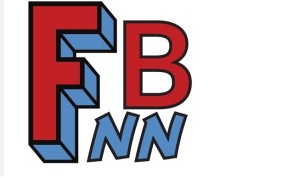 Once again, we find ourselves wading into the issue of harassment in geek culture. This time it hits the big arena that is San Diego Comic Con (SDCC).
Once again, we find ourselves wading into the issue of harassment in geek culture. This time it hits the big arena that is San Diego Comic Con (SDCC).
The growing awareness of the issue of harassment at conventions has led to many conventions addressing this issue in increasingly clear language. I have written about this several times. We have seen good examples (such as the policies put forth by Emerald City Comicon and The Calgery Expo), bad examples (such as with Fan Expo Canada), and even tragic examples (as was the case with Aki Con).
But unlike these shows, SDCC is well known to mainstream culture. It is THE big show, sells out in 90 minutes, and getting to go is akin to getting the golden ticket.
In light of all these factors, a group called GeeksForCONsent created an online petition to urge SDCC to create a specific anti-harassment policy. Right now, what they have is a broad code of conduct that mentions harassment, but does not define what it means.
Specifically, the SDCC code of conduct is as follows: Attendees must respect common sense rules for public behavior, personal interaction, common courtesy, and respect for private property. Harassing or offensive behavior will not be tolerated. Comic-Con reserves the right to revoke, without refund, the membership and badge of any attendee not in compliance with this policy. Persons finding themselves in a situation where they feel their safety is at risk or who become aware of an attendee not in compliance with this policy should immediately locate a member of security, or a staff member, so that the matter can be handled in an expeditious manner.
What GeeksForCONsent is looking for is a more clearly defined process that includes a visible reporting mechanism, signs around the convention outlining the policy, and staff training on how to handle these issues. If this sounds familiar, it is because I wrote about it here detailing Emerald City Comicons anti-harassment effort. These are also the steps that The Calgary Expo and many others adopted this year.
Unfortunately, any hope of this petition having any effect right now is stalled. We know this because the director of marketing for SDCC (Daniel Glanzer) has commented on the petition in an interview stating that he did not favor creating a more explicit and visible policy, because it may send the message that there is a harassment problem at SDCC.
I understand if you need to take a minute after reading that last sentence.
Glanzer’s stance is that he thinks that SDCC has taken sufficient steps to deal with harassment and anything else would just cause bad press. I want to go on record as disagreeing with Glanzer. While I do not think a policy needs to be point by point, I do feel it needs to be specific enough that it points out what harassment is defined as, and what mechanisms are in place for someone to report it and get help. In reading Glanzer’s, response I feel his message was that SDCC marketing and publicity was more important than making the convention a safe space. Not only do I find their position unsettling, I worry that they are sending a message to other convention organizers that they need not worry about their own harassment policies.
We are at a point in geek culture when the issue of inclusion vs harassment is now a major issue. Not every convention has a good policy, but as more incidents are having light shed on them, more organizers are taking steps to address the issue. The effects of these steps are visible. Conventions that make sure they are a safe space are reaping the benefits of good will and strong attendance. Conventions that ignore the issue are getting bad reputations and are starting to see more people staying away.
My biggest concern is that SDCC does not have as much incentive to change, since it is the big dog of conventions. Even staying with their lack luster policy they are going to sell out. The only thing that might be able to change their position externally is a lot of very bad press, or boycotts from major figures in fandom.
My hope is that someone with clout, either inside or outside the organization, can convince them that updating their policy is in everyone’s best interest.
Until then, it is up to those of us in the trenches to keep pushing this message and demanding better.

